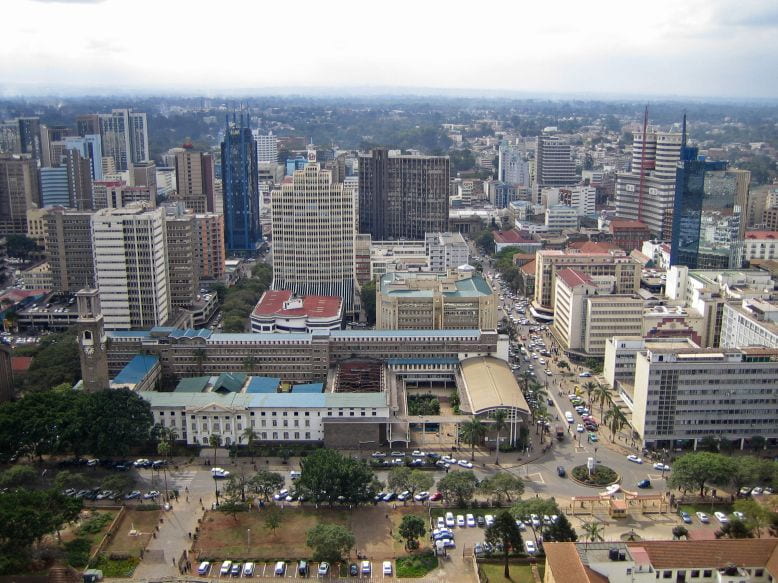The summer of 2020 was defined for many by the global COVID-19 pandemic and civil demonstrations against police brutality. In the United States, the killing of George Floyd sparked nationwide protests as it rekindled outrage over how police kill Black men without serious repercussions. These protests inspired demonstrations of solidarity around the world by people who felt similarly dissatisfied or threatened by their police and government’s inability to protect marginalized communities. Around the globe, protesters called for police reform, while activists had to decide how to express their dissent amidst a deadly virus.
In both the United States and Kenya, many protestors decided to prioritize activism despite the virus and lockdown orders. Activists in both countries felt the moment for action to end police brutality could not wait for the virus to pass, because just like police brutality, the virus was disproportionately affecting the poorest and most disenfranchised communities. Marginalized Black Americans and impoverished Kenyans face existential threats from both COVID-19 and governmental systems’ failure to equitably protect and serve them. The virus brought a novel threat while also raising awareness of many institutionalized threats, like police brutality, which disproportionately impact marginalized communities in Kenya and the United States
In Nairobi, Kenyan activists and communities gathered in the streets to express their dissatisfaction with the police system. Tensions over police authority are not a novel issue to the poorest parts of Kenya. In 2002, a majority of Kenyans expressed a lack of trust in their police and believed a corrupt system contributed to the country’s high crime rate, according to research by J.N. Auerbach in the African Human Rights Law Journal. In 2009, a UN rapporteur analyzed factors that normalized the extrajudicial killings in Kenya, including a justice system that incentivized killing suspected criminals rather than arresting them. A lack of accountability mechanisms from internal or external sources, and contradictory or overly permissive use-of-force laws were other notable systemic problems. Other factors included intimidation of witnesses, fear of retaliation for testifying or reporting police violence, and lack of sufficient training. This history of overreaching, lack of accountability, and distrust set the backdrop for this summer’s demonstrations amidst a global pandemic and the spreading of conversations about the role of police in ensuring justice and tranquility in communities.
Lockdown orders in Kenya began in March to slow the spread of COVID-19. The state relied on police to enforce nightly curfews as part of this lockdown order. The police were granted heightened authority by the state to make arrests and use force from a colonial-era Public Order Act. During the first five nights of lockdown, there were reports of at least seven police killings. Police enforcement of the lockdown orders seemed to increase pre-existing tensions, which led to more demonstrations and created a demonstration-police crackdown loop. On March 30, a 13-year-old boy, Yasin Moyo, was shot standing on his balcony watching police check the streets at the end of the day in Mathare, one of the poorest and most heavily policed areas of Nairobi. This shooting particularly exacerbated the outrage over increased police presence and violence. A demonstration in response to this shooting was held in July, which resulted in a lower turnout than organizers had hoped due to fears of the virus and potential police retaliation. Still, at the protest alone, 60 demonstrators were arrested by police for violating lockdown orders. Organizers like Wilfred Olal expressed frustration over the lack of turnout, saying they cannot wait to “seek justice after covid.”
The summer of protests amidst lockdowns in Kenya and the United States brought long-standing injustices rooted in policing systems to the front of civil societies’ consciousness. While protesters in the United States made calls to defund police departments, protestors in Kenya called for more accountability and transparency. Activist and community organizer Juliet Wanjira of Mathare Social Justice Center in Nairobi said a parallel she sees is that “poor people are [treated as] criminals and not given dignity.” She also expressed that the struggle of people in Kenya and the United States against oppression was one. The COVID-19 pandemic has shown a light on how many modern societies’ institutions, like the police and healthcare, have failed their most at-risk citizens.
Author Biography: Meredith Gusky is a senior moderator for the International Law and Policy Brief (ILPB) at The George Washington University Law School. She is a dual degree candidate at The George Washington Law School and The Elliott School of International Affairs.

